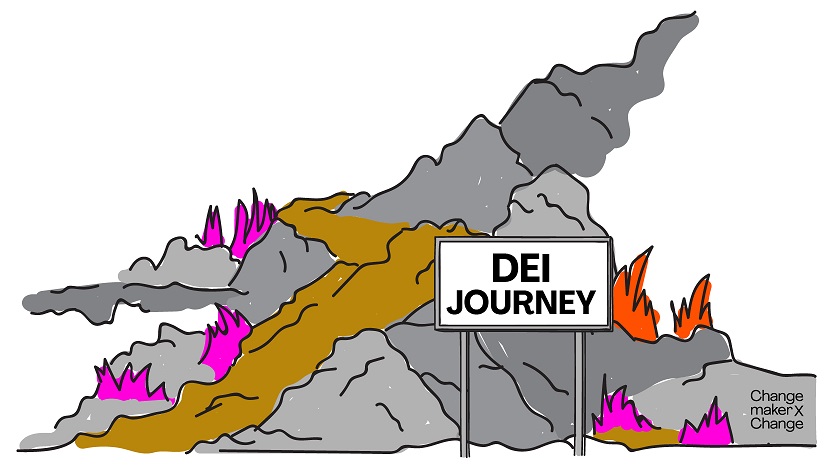By Nadya Saib (DEI Consultant for ChangemakerXchange) and Nick McGirl (ChangemakerXchange Core Team).
We are living in a time when glaring injustices and inequities in the world are impossible to ignore. Now, more than ever, deliberate Diversity, Equity, and Inclusion (DEI) efforts are crucial. At the same time, we must acknowledge that DEI work is challenging and progress can often feel slow or elusive.
We therefore consider this an important moment of reflection—a chance to pause and reflect on our journey to weave diversity, equity, and inclusion in all elements of ChangemakerXchange so far. We take this opportunity to double down and restate our commitment to this work. By sharing our experience, we also hope to contribute to the broader DEI conversation and provide insights that can help anyone looking to start or sustain their DEI work.
So here goes.
A quick disclaimer: this blog post is not a comprehensive report on our Diversity, Equity, and Inclusion (DEI) efforts. That detailed report will be available in the next few months.
Establishing accountability from the outset.
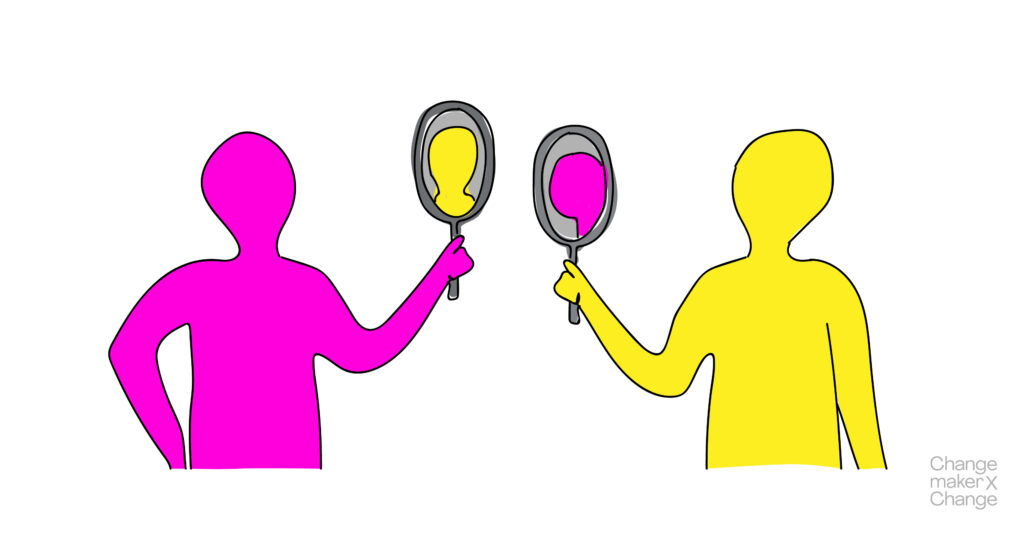
It’s been a year and a half since our team publicly committed to fostering DEI at ChangemakerXchange. This announcement was one of the immediate short-term steps we believed were essential for maintaining our focus on DEI. We communicated this widely through our newsletter, ensuring our stakeholders, especially our community members, were informed of our intentions and the steps we planned to take.
Another initial step was appointing ‘DEI keepers’. These individuals ensure that DEI remains on everyone’s radar and that things do not fall through the gaps. In our case, DEI Keepers include a consultant specialising in DEI (Nadya Saib, a ChangemakerXchange community member who is also a DEI advocate at Kolaborasi Keberagaman Inklusif) and a core team member (Nick McGirl).
Reflecting on our teamwork as DEI Keepers, we’ve found that having diverse life experiences on our team is crucial. Our varied backgrounds—Nick, a British, married, cisgender male living in Germany, and Nadya, an Indonesian, single, Muslim woman living in Indonesia—bring multiple perspectives to every conversation, helping us check our individual biases. While, of course, the two of us can never fully understand the entire spectrum of viewpoints out there, our ‘mini’ diversity helps us get a little closer to understanding a broader range of perspectives than either of us could alone.
Not to mention, having two people on this team has also meant we have largely been able to avoid the loneliness that is often par for the course for many DEI officers.
Connecting the DEI work to our Organisational Vision.
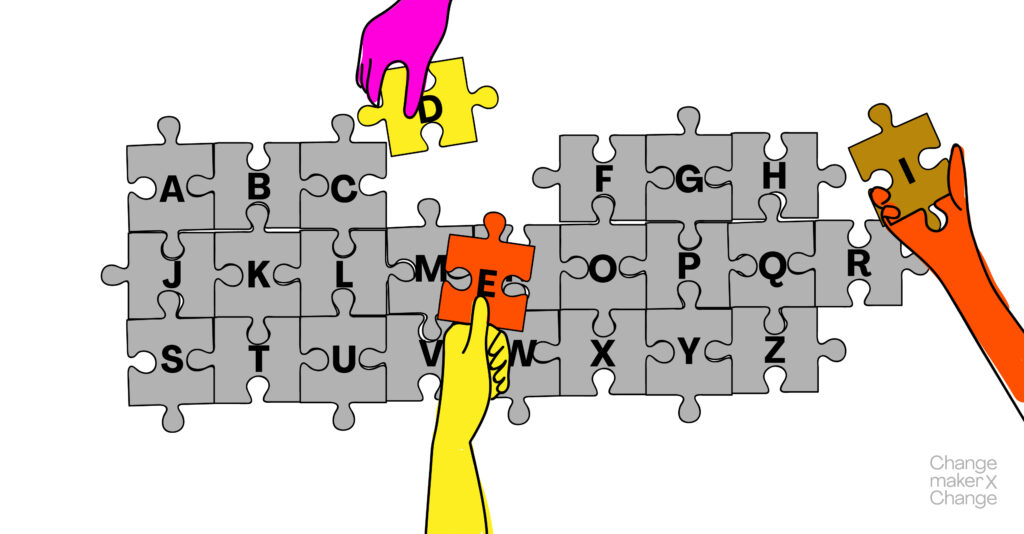
As we aim to move beyond the buzzwords, get broad buy-in, and truly embed DEI into our work, we have found it crucial to make the connection to our core programmatic work at ChangemakerXchange.
The importance of DEI resonates with our findings from The Possibilists study, which shows that young social innovators who identify as marginalised face even more significant barriers and struggles in achieving their impact. These include a higher risk of burnout and less financial security. The point on belonging is also highlighted in the core recommendation of the study; “we must acknowledge that young social innovators can only create impact for their communities if they are thriving as individuals.”
DEI work is also a necessary prerequisite for the fulfillment of the CXC vision itself:
🎯 CHANGEMAKERXCHANGE ENVISIONS A WORLD WHERE EVERYONE IS PART OF INCLUSIVE COMMUNITIES IN WHICH PEOPLE CONNECT DEEPLY AND CO-CREATE POSITIVE ACTION TO SERVE THE WELLBEING OF PEOPLE AND PLANET.
Deep connections and co-creation do not happen without people feeling included and thus belonging, which is often seen as the ultimate goal of DEI work.
A journey from the inside out.
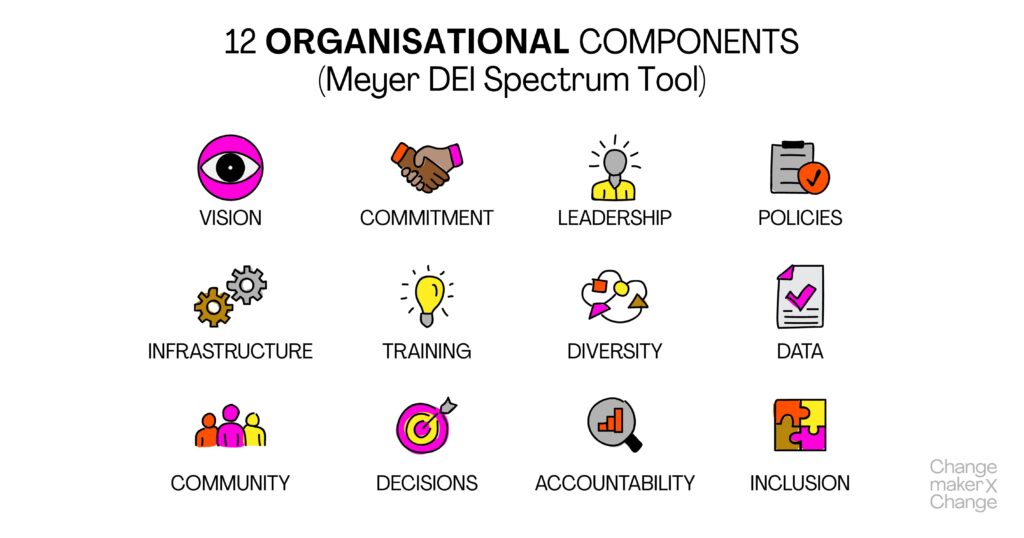
The next key action we took was conducting a self-assessment of our core team. We wanted to gauge how effectively we have integrated DEI considerations into our organisational practices.
Using Meyer DEI Spectrum Tool, every member of the core team at the time participated in an analysis of which of the twelve organisational components should take precedence in our ongoing efforts.
Following up on the data we collected, rather than looking at the relatively high average scores, we agreed that the collective ‘score’ in the core team is only as high as the person who ranked us the lowest. (If even only one person felt excluded based on a certain criterion, we used their score as the benchmark, indicating that we have significant work to do!) Guided by this principle, we prioritized our next steps, considering both the urgency and the logical sequencing of actions.
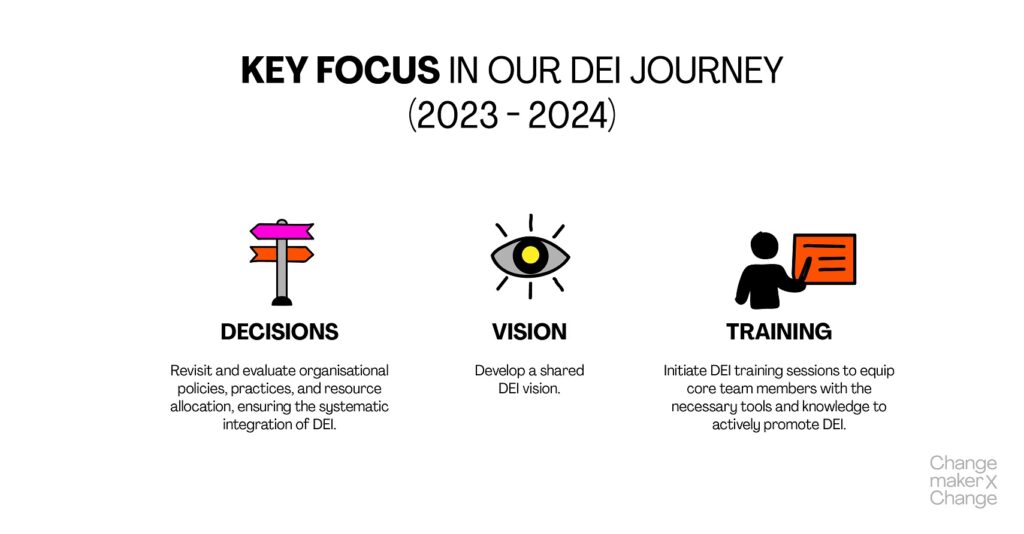
The Role of Data.
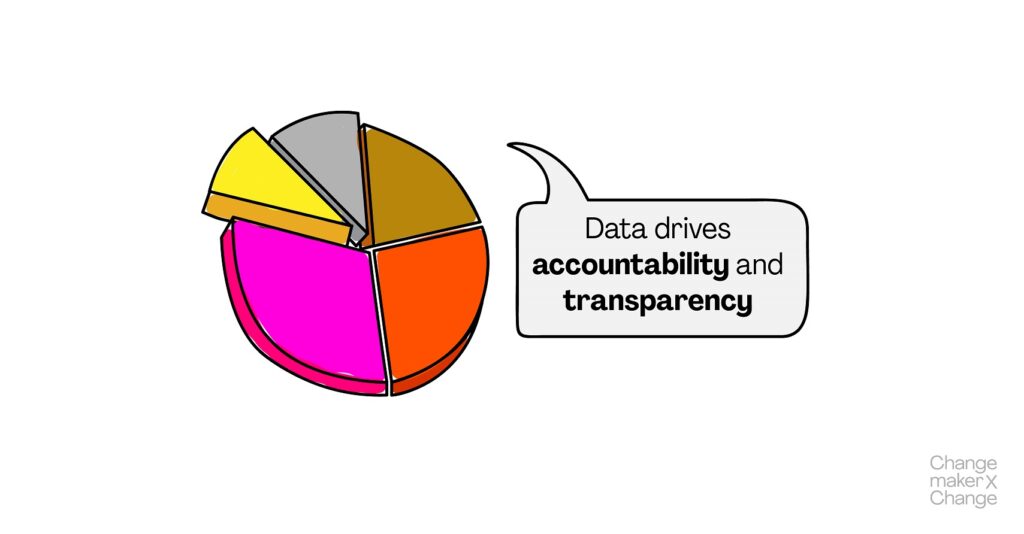
Upon evaluating our organisational policies and practices, one important realisation emerged: certain areas lacked sufficient data for comprehensive and continuous assessment.
Take, for instance, our hiring processes, whether for programmes, team positions, or facilitator roles. While we adhere to GDPR regulations by promptly removing applicant data post-selection, we previously neglected to maintain records on the diversity of our applicant pool. As a result, we lacked the data necessary to measure the effectiveness of our newly implemented DEI initiatives.
Recognizing the pivotal role of data in our evolving DEI endeavors, we’ve since taken proactive measures. In our recent hiring or open application process, we have collected anonymous demographic data, including region, nationality, age, gender, and self-identified marginalized status, from our applicants. We aim to use this as a foundation for informed decision-making and continuous improvement.
On a similar note, the benefits of data collection and analysis have led us to opt for targeted hiring within our facilitation pool. Our trained ChangemakerXchange facilitators run almost all of our programming on the ground in different regions, serving as an extension of us in the core team. It’s important for us to ensure that the diversity in the facilitation pool closely represents the diversity within our community.
It’s deeply personal work—healthy tensions should be expected.
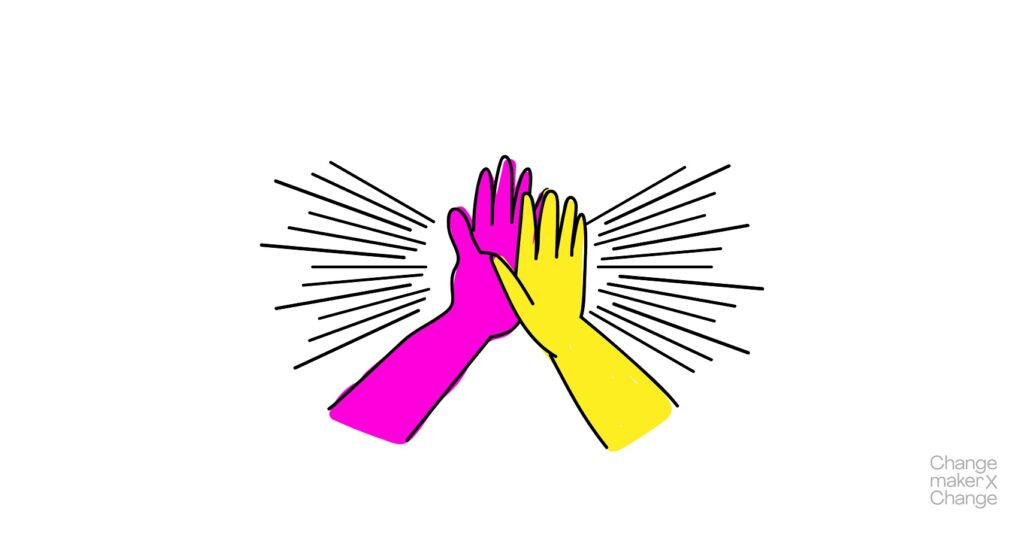
If there’s one thing we knew very well from the very beginning of our DEI journey, it is that this work is deeply personal. Engaging in DEI discussions often necessitates challenging our own biases and long-held beliefs, a process that can be uncomfortable at times.
We were reminded of this again in the first core team DEI training. Led by our community member and DEI facilitator, Ingi Mehus, our training delved deep into the realms of emotions and stories that circulate both within and between each of us. We were prompted to reflect on our identities, values, and lived experiences, and then to see how these intersect and connect with those of others. It was tense, but as one core team member expressed in an anonymous feedback form after the training, “We have gotten to know each other on another level.”
We have observed that when vulnerability is met with compassion and understanding, tensions can become healthy and constructive rather than divisive. Embracing this discomfort is the only way to go.
Reminder: ‘We’ll never get everything just right.’ Our duty is to keep listening, learning, and trying.
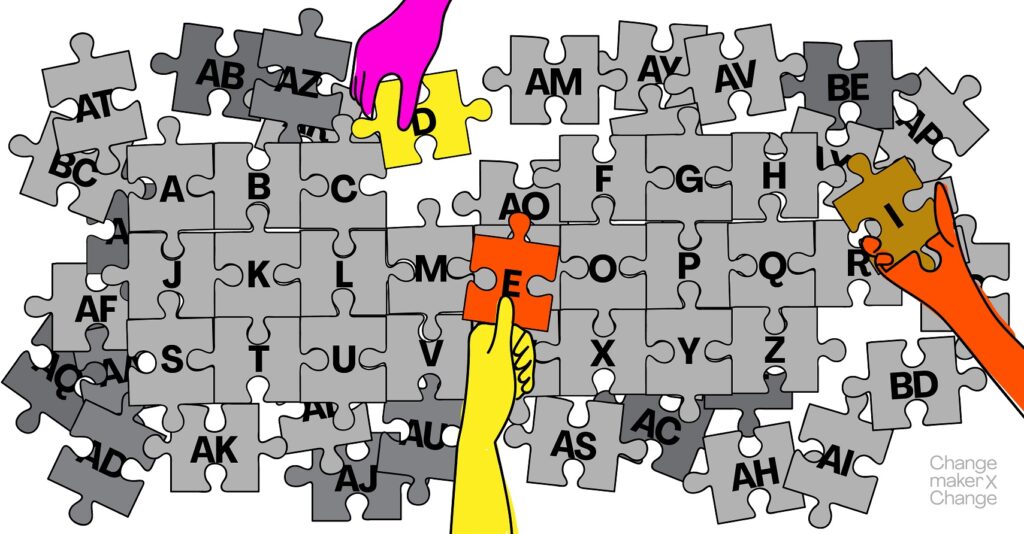
We’d like to conclude with one thing we’re constantly internalizing: despite our best efforts, we will never get everything right.
Since sharing our commitment to DEI, we have introduced new initiatives and from there—huge thanks to our community members—we have also received numerous pieces of feedback on how we can do better. Honestly, sometimes it can be quite painful to hear, especially when we believed we were doing our best, only to discover that ‘our best’ was not enough.
Having the mindset that perfection is never the goal (but progress is!) helps us approach our DEI work with humility and curiosity. After all, none of us will ever be able to fully understand or completely empathize with another person’s lived experience, no matter how hard we try. While accepting this reality may not take away the discomfort of difficult feedback, it does give us a reason to continuously listen, reflect, adapt, and persevere.
***
At ChangemakerXchange, when it comes to learning about (and cultivating) DEI in our organisation and our lives, we consider ourselves as on a constant journey, in which we may never ‘completely arrive’ and we are in this for the long run, are you with us?
